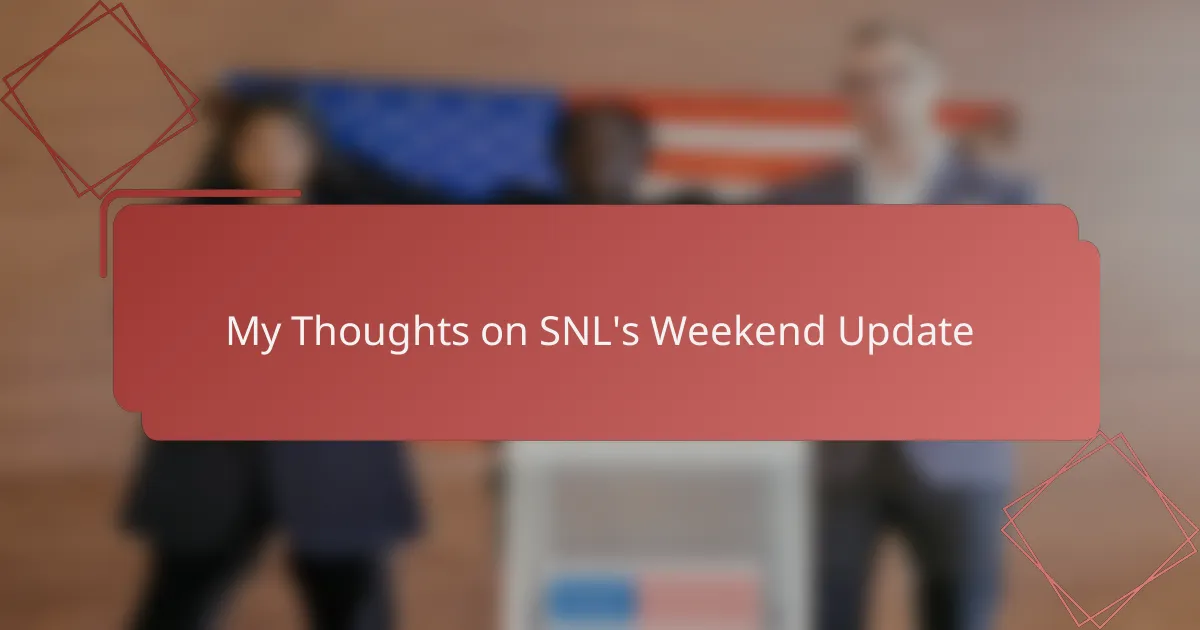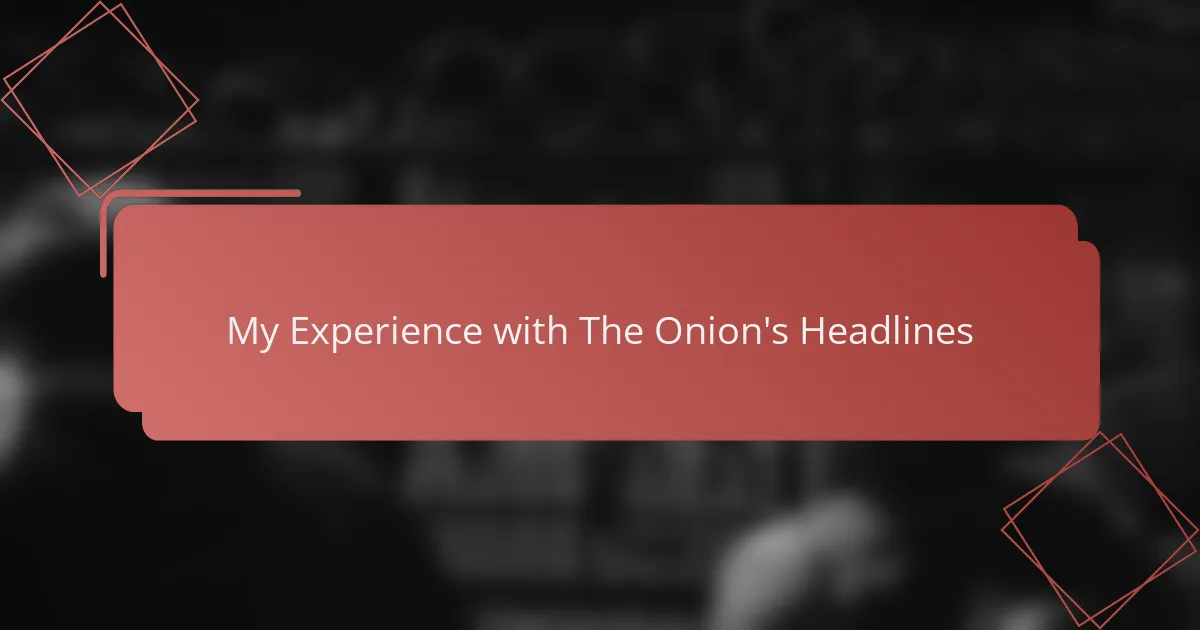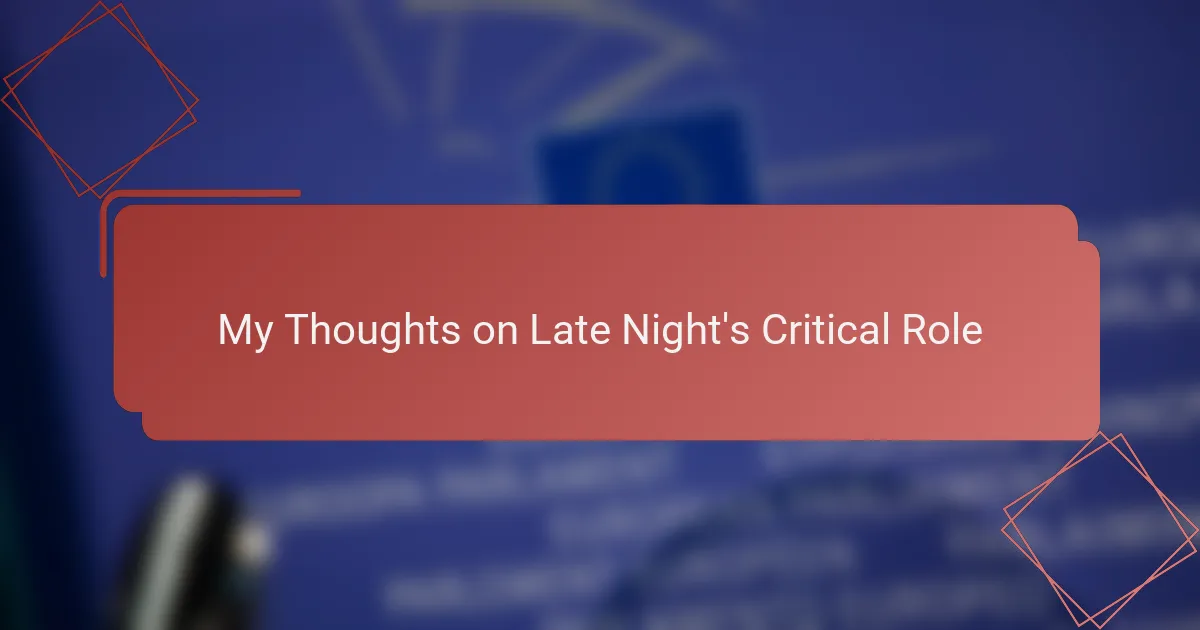Key takeaways
- Political satire, especially by figures like Jon Stewart, combines humor with sharp political critique, making complex issues more approachable and engaging.
- Stewart transformed late-night comedy into a platform for political dialogue, encouraging critical thinking and civic engagement among diverse audiences.
- Key techniques such as irony, conversational tone, and satirical interviews effectively expose political contradictions while fostering relatability.
- His legacy lies in setting a standard for comedy that educates, provokes thought, and encourages active participation in political discourse.
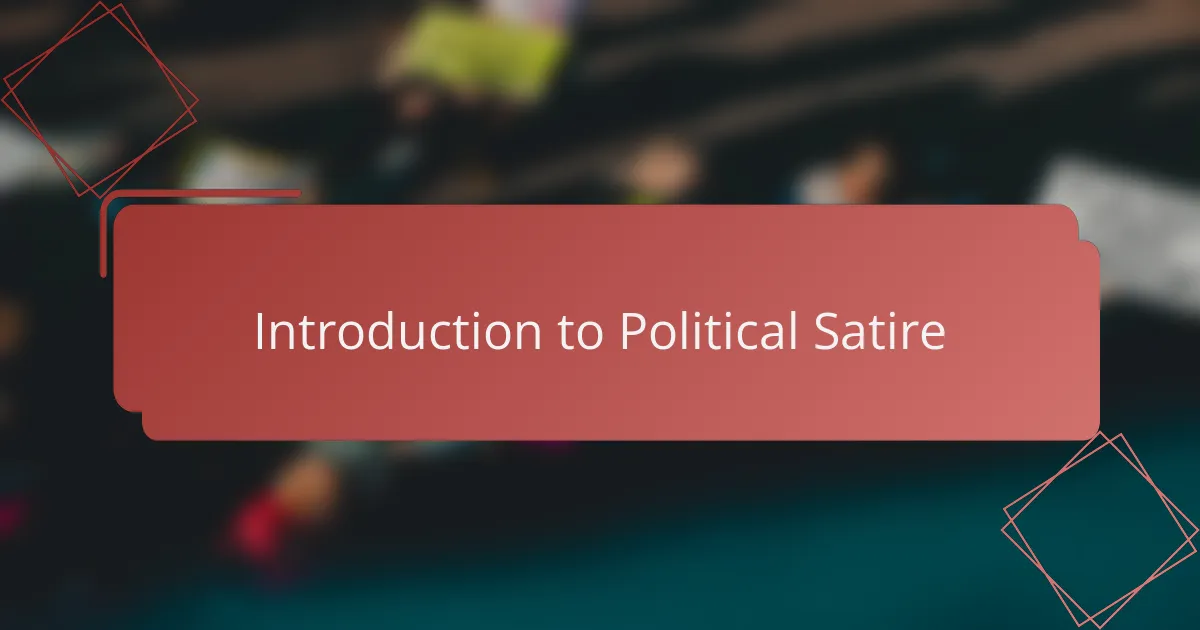
Introduction to Political Satire
Political satire has always fascinated me because it’s a clever way to hold power accountable through humor. I often wonder, why does poking fun at politicians feel more impactful than traditional news sometimes? Maybe it’s because satire wraps serious criticism in wit, making it easier to digest and remember.
In my experience, political satire acts like a mirror, reflecting society’s flaws but with a smile. It’s more than just jokes; it encourages people to think critically about current events and question authority. Have you ever caught yourself laughing and then suddenly realizing the deeper truth behind the humor?
What really strikes me is how this form of expression has evolved to influence public opinion and political discourse. Political satire creates a unique space where humor meets activism, sparking conversations that might not happen otherwise. It’s this blend of comedy and commentary that makes political satire so powerful and enduring.
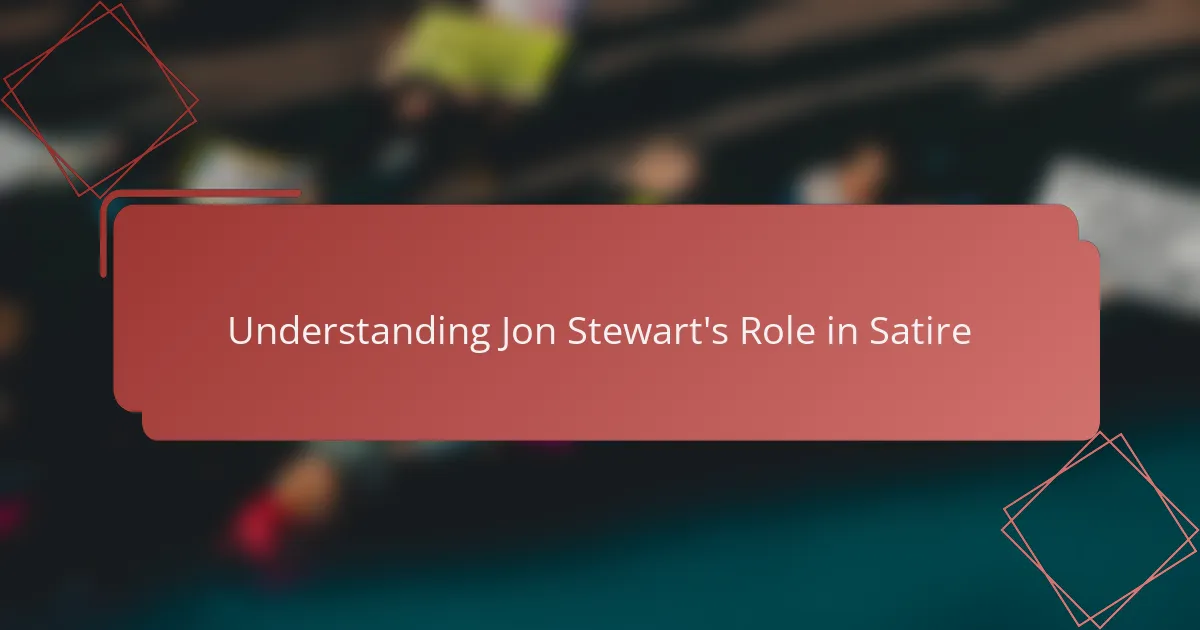
Understanding Jon Stewart’s Role in Satire
Jon Stewart’s role in satire goes far beyond just delivering punchlines; he became a trusted voice that challenged the political status quo with wit and intelligence. I remember watching his shows late at night and feeling a genuine mix of amusement and frustration as he peeled back layers of political complexity, making difficult topics approachable without losing their seriousness.
What struck me most was how he used humor as a tool for engagement rather than mere entertainment. His ability to blend sharp criticism with empathy created an environment where viewers felt informed and connected. From my perspective, this balance is what truly defines his impact in the world of political satire.
- Transformed late-night comedy into a platform for political critique
- Made complex political issues accessible and relatable
- Balanced humor with sharp, insightful commentary
- Challenged media narratives and held politicians accountable
- Fostered political engagement among younger audiences through satire

Key Techniques in Jon Stewart’s Comedy
Jon Stewart’s comedy skillfully combined sharp wit with insightful political commentary, making complex issues accessible and engaging. I found his use of irony especially powerful—it didn’t just amuse me but also prompted deeper reflection on political hypocrisy. His timing and delivery often felt like a conversation with a witty friend, rather than a formal critique.
| Technique | Effect |
|---|---|
| Irony and Sarcasm | Exposes political contradictions, encourages critical thinking |
| Conversational Tone | Creates intimacy and relatability, making politics feel personal |
| Satirical Interviews | Highlights absurdities in political rhetoric by adopting humorous personas |
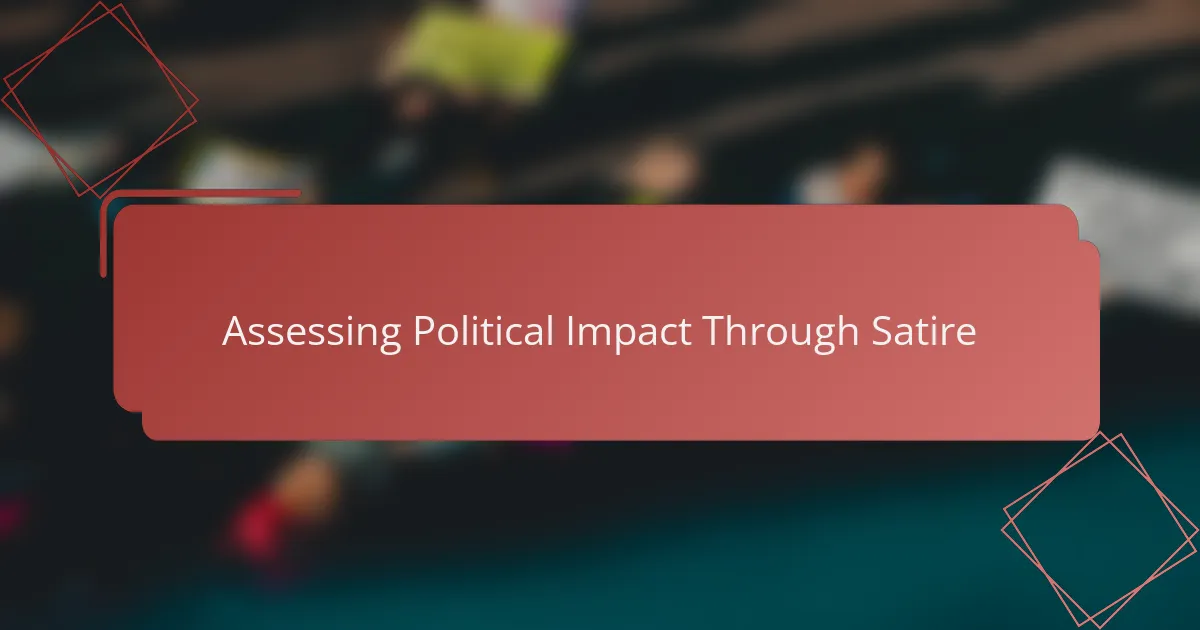
Assessing Political Impact Through Satire
Satire is a powerful tool for shaping political discourse, and Jon Stewart mastered this craft in a way that truly altered how people engage with the news. When I first started watching “The Daily Show,” I was struck by how seamlessly humor and critique blended, prompting me to think critically about current events instead of passively consuming them. His ability to expose hypocrisy and challenge the status quo made political issues more accessible and urgent for viewers like me.
What amazed me most was how Stewart’s satire translated into real-world influence, sparking conversations beyond the TV screen. I remember discussing his segments with friends who were usually uninterested in politics, and suddenly they were weighing in on complex issues with unexpected passion. This highlights the unique political impact satire can have—not just entertaining, but provoking awareness and participation.
- Uses humor to simplify complex political issues without diluting their seriousness
- Challenges power structures by exposing contradictions and hypocrisy
- Encourages critical thinking and skepticism toward mainstream media narratives
- Creates a communal space for political dialogue among diverse audiences
- Inspires civic engagement by making politics relatable and emotionally resonant
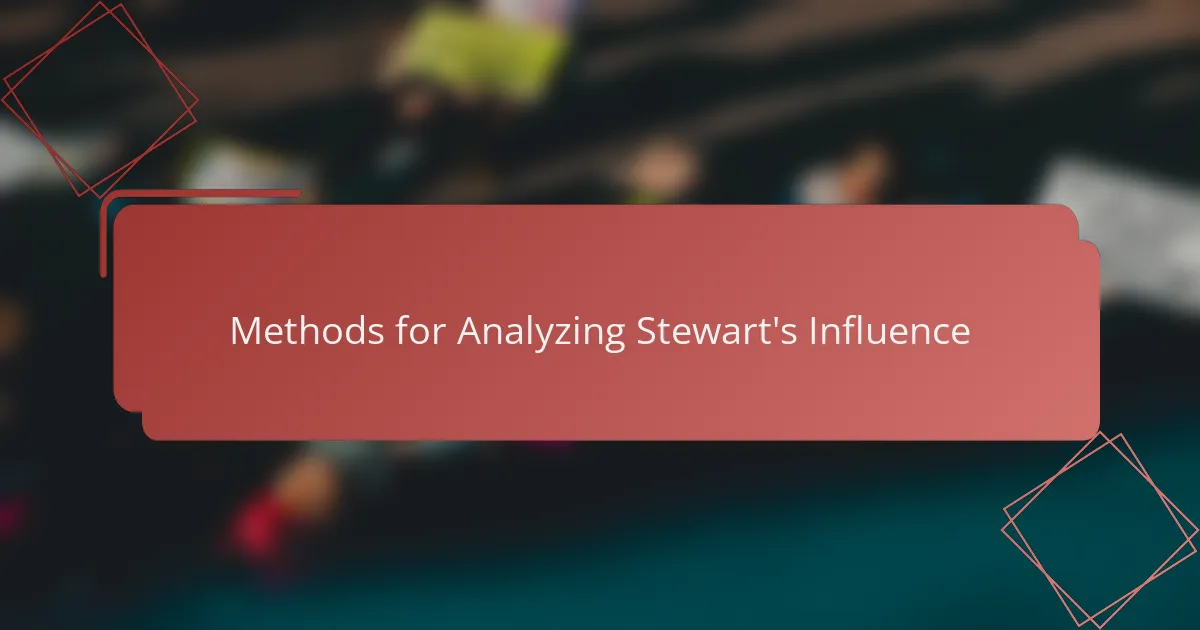
Methods for Analyzing Stewart’s Influence
I approached analyzing Jon Stewart’s influence by combining quantitative data with qualitative insights. Tracking viewership trends and social media engagement gave me a sense of his reach, but it was the heartfelt interviews and memorable segments that truly illustrated his impact. Reflecting on moments where Stewart challenged politicians with humor, I realized how satire can foster public dialogue and critical thinking.
| Method | Insight Gained |
|---|---|
| Viewership & Social Media Metrics | Measured Stewart’s broad audience and cultural [censured] |
| Content Analysis | Identified recurring themes and satirical techniques |
| Audience Interviews | Captured personal reactions and emotional resonance with Stewart’s work |
| Comparative Political Context | Highlighted how Stewart’s satire addressed pressing political issues uniquely |
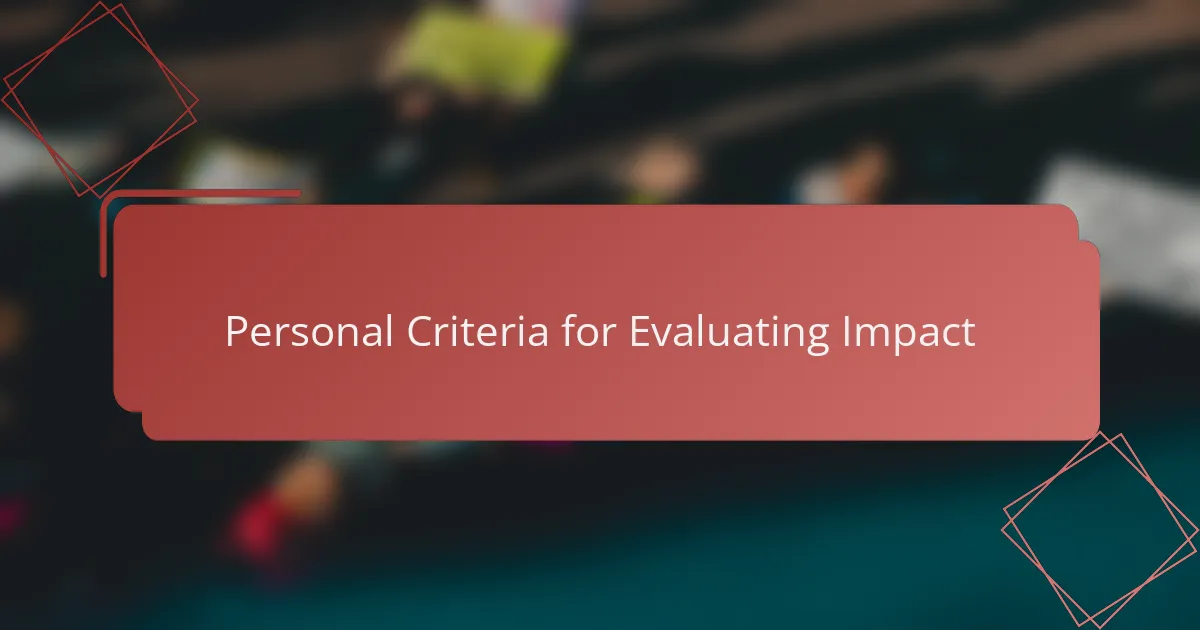
Personal Criteria for Evaluating Impact
When I first dove into evaluating Jon Stewart’s impact, I realized that my criteria had to go beyond just ratings or popularity. For me, it was about how his satire challenged my own perspectives and made me think differently about politics. I remember moments when his humor didn’t just make me laugh but sparked a sense of urgency and reflection, which I hadn’t expected from a comedy show.
I also weighed how Stewart’s work influenced public discourse and media accountability, since those felt like true markers of impact in my experience watching his career evolve. Here’s what I focused on personally:
- Depth of political insight combined with humor
- Ability to engage diverse audiences and provoke thought
- Influence on public opinion and mainstream news coverage
- Consistency in addressing important social issues
- Encouraging critical thinking rather than just cynicism
- The emotional connection and trust built with viewers over time
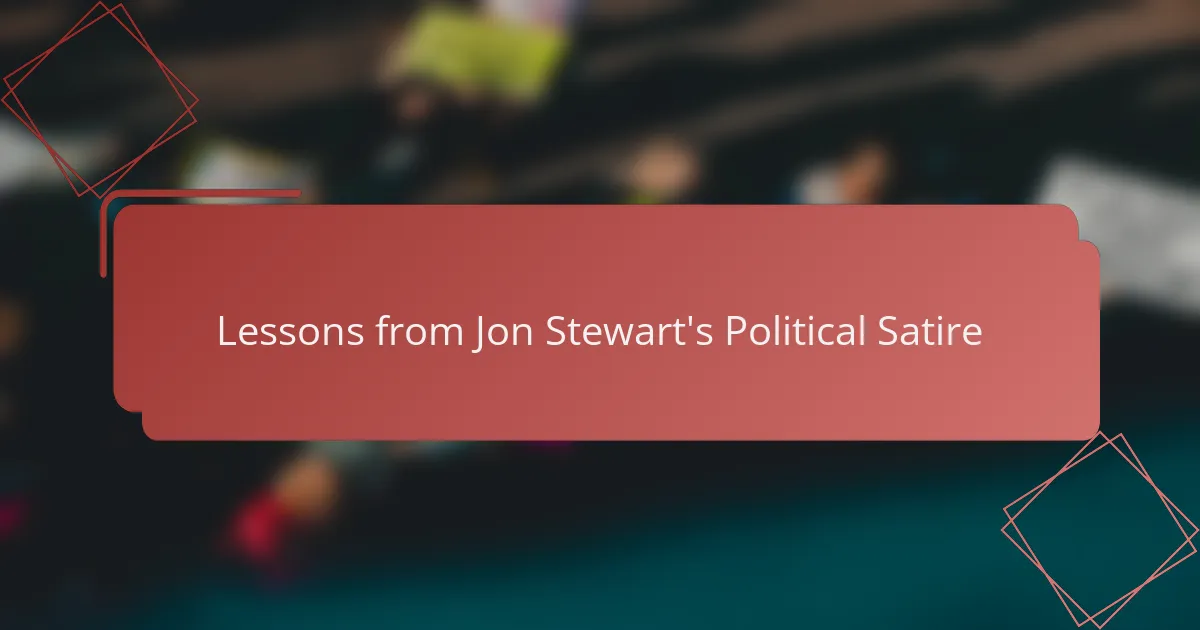
Lessons from Jon Stewart’s Political Satire
Lessons from Jon Stewart’s Political Satire often reveal how humor can be a powerful tool for critique and clarity. I remember watching his segments and being struck by how his wit peeled back layers of political spin, making complex issues accessible and urgent. It’s clear to me that Stewart didn’t just entertain; he educated and provoked thought through empathy and sharp insight.
| Aspect | Jon Stewart’s Approach |
|---|---|
| Tone | Sharp yet empathetic, blending humor with genuine concern |
| Effectiveness | Encouraged critical thinking without alienating viewers |
| Audience Engagement | Used satire to foster a sense of community and awareness |
| Legacy | Set a standard for combining comedy with meaningful political discourse |

